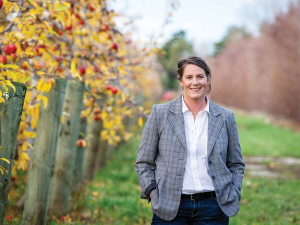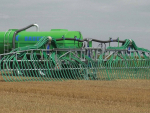There are many ways to acquire the new machinery you need to have working your land and herds.
And this is a season for getting the salesmen to sharpen their pencils. Rural News hears tractor retail sales for the first quarter of 2015 are about 25% down on the same period in 2014, but there is still business out there. Many suppliers have their sales teams now trying to secure orders for high value items that need landing for the start of the new grass season in September.
The farming community is in a position where it is considered a safe bet by lending institutions, so there are various finance options available.
If we look beyond the shoebox under the bed stuffed with hard cash, the major sources of credit are the high street banks, finance companies and finance brokers. Between them they offer a range of products that should suit most funding requirements and help you get that needed piece of kit on your yard.
For many farmers their banks are the first port of call, but many report how quickly things can change when they try to source capital; from a gung-ho “have as much as you want” to an “end of the world-you should lock your cheque book away” attitude in difficult years.
Finance companies, and brokers who tend to work with second-tier finance providers, are particularly active in the lending arena for machinery purchases, and in many cases have aligned themselves with machinery manufacturers to offer subsidised finance schemes. These can prove to be very attractive with recent press offerings ranging from “pay nothing until 2016 at 0%” to “30% deposit then 36 monthly payments at 2.99%”. Assuming you can find a deposit, which might be a trade-in, and the monthly instalments, it’s worth realising that a finance rate of 2.99% represents an annual interest charge of about $1050 per $100,000 borrowed on a declining balance.
The products they offer might include bank loans, hire purchase agreements, lease to ownership, operating leases or hire.
Looking at these individual products throws up some key differences mainly surrounding ownership.
Bank loans and hire purchase agreements tend to be the most straightforward with a fixed monthly repayment and a fixed term which might run from a minimum of 12 months out to around 60 months. Most companies require a minimum agreement value of $10,000. Ownership is transferred to the user from the start, and as such any gains or losses in the value also pass to the owner. Any expenses or depreciation of the item can be claimed in annual accounts.
Lease purchase or lease to own is also extremely popular in the purchase of farm machinery, and tends to be used more by businesses with a cashflow profile that is seasonal. The agreement is likely to be structured so that repayments cover the reduction in capital cost and interest, but there will be a residual component to sort out at the end of the deal. Whilst there is a fixed term as with hire purchase of between 12 and 60 months, the structure of the repayments can be fixed, or they might be seasonal.
A good example might be an agricultural contractor who has a larger monthly repayment from October through to March, and then reverts back to minimum amounts for the remainder of the year. Alternatively, the profile might be quarterly, half-annual or yearly over three to five years. The key point of difference is that ownership lies with the leasing company until the end of the agreement. At this point the customer has a number of options. They might carry on using the machine and pay a secondary rental, or trade the unit in for a new machine. Alternatively, they can refinance the machine or pay off the residual to own the machine. On the latter option the residual value must be reasonable as seen in the eyes of the IRD department.
A further expansion of the lease to own route is a full operating lease, which is a route that continues to grow with larger businesses that will typically need to purchase larger, more capital intensive machines, but don’t want any surprise bills. In these instances they do not seek to own the machine, but require a fixed cost per hour to run the machine, and when the lease ends, trade up to a newer and more productive unit. They will typically have a component built into the agreement that covers the maintenance of the unit, which will be carried out by the supplying dealer on a routine basis.
The final route into new machinery which might not immediately spring to mind, but could be useful, is short term hire. Indeed, there are a number of companies throughout NZ who operate a fleet of tractors and machines for this market. It is typically favoured by contractors who have an increased demand for tractors during the busy harvest or cultivation period. It might also be a good method for ‘testing the water’ if you are trying to develop a new market in an area. Hire the machine for a season; if the demand is there, buy a machine, if not, put it down to experience.
Your accountant or financial advisor will advise which route serves your business best.
The good news is that the agricultural industry is seen as a “good bet” by the finance industry when compared to other areas such as vehicles. Even in a difficult payout year the lenders do not expect any major rise in default rates.



















